van der Kolk, Bessel | September 25, 2014
Trauma is a fact of life. Veterans and their families deal with the painful aftermath of combat; one in five Americans has been molested; one in four grew up with alcoholics; one in three couples have engaged in physical violence. Dr. Bessel van der Kolk, one of the world’s foremost experts on trauma, has spent over three decades working with survivors. In The Body Keeps the Score, he uses recent scientific advances to show how trauma literally reshapes both body and brain, compromising sufferers’ capacities for pleasure, engagement, self-control, and trust. He explores innovative treatments—from neurofeedback and meditation to sports, drama, and yoga—that offer new paths to recovery by activating the brain’s natural neuroplasticity. Based on Dr. van der Kolk’s own research and that of other leading specialists, The Body Keeps the Score exposes the tremendous power of our relationships both to hurt and to heal—and offers new hope for reclaiming lives.
Order Now →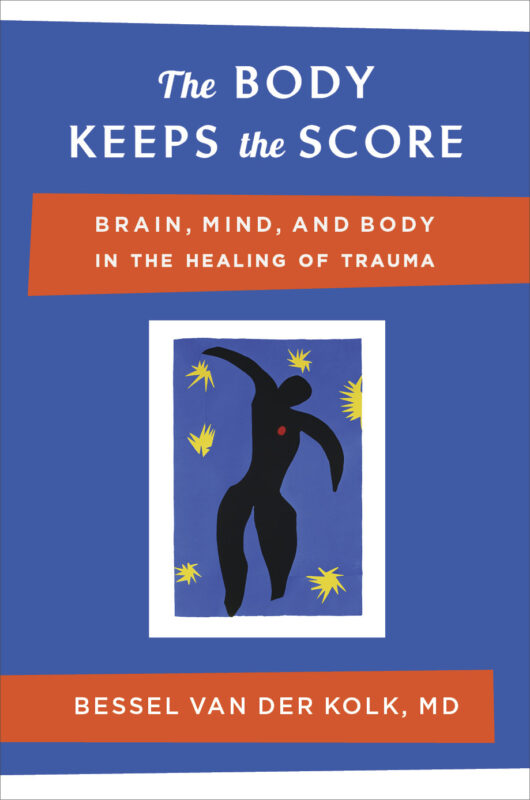
Mark Wolynn | April 26, 2016
As a pioneer in the field of inherited family trauma, Mark Wolynn has worked with individuals and groups on a therapeutic level for over twenty years. It Didn’t Start with You offers a pragmatic and prescriptive guide to his method, the Core Language Approach. Diagnostic self-inventories provide a way to uncover the fears and anxieties conveyed through everyday words, behaviors, and physical symptoms. Techniques for developing a genogram or extended family tree create a map of experiences going back through the generations. And visualization, active imagination, and direct dialogue create pathways to reconnection, integration, and reclaiming life and health. It Didn’t Start With You is a transformative approach to resolving longstanding difficulties that in many cases, traditional therapy, drugs, or other interventions have not had the capacity to touch.
Order Now →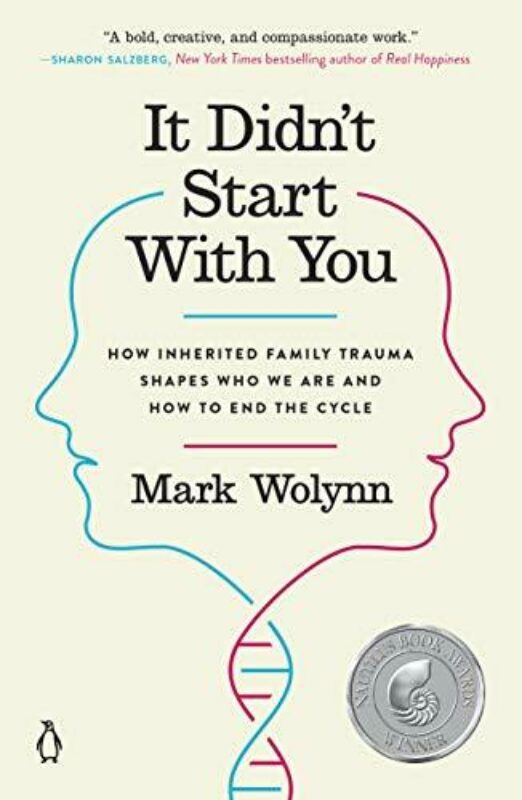
Karr-Morse, Robin and Wiley, Meredith S. | January 7, 2014
This new, revised edition incorporates significant advances in neurobiological research over the past decade, and includes a new introduction by Dr. Vincent J. Felitti, a leading researcher in the field. When Ghosts from the Nursery: Tracing the Roots of Violence was published in 1997, it was lauded for providing scientific evidence that violence can originate in the womb and become entrenched in a child’s brain by preschool. The authors’ groundbreaking conclusions became even more relevant following the wave of school shootings across the nation including the tragedy at Columbine High School and the shocking subsequent shootings culminating most recently in the massacre at Sandy Hook Elementary School in Newtown, Connecticut. Following each of these media coverage and public debate turned yet again to the usual suspects concerning the causes of violence: widespread availability of guns and lack of mental health services for late-stage treatment. Discussion of the impact of trauma on human life—especially early in life during chemical and structural formation of the brain—is missing from the equation. Karr-Morse and Wiley continue to shift the conversation among parents and policy makers toward more fundamental preventative measures against violence.
Order Now →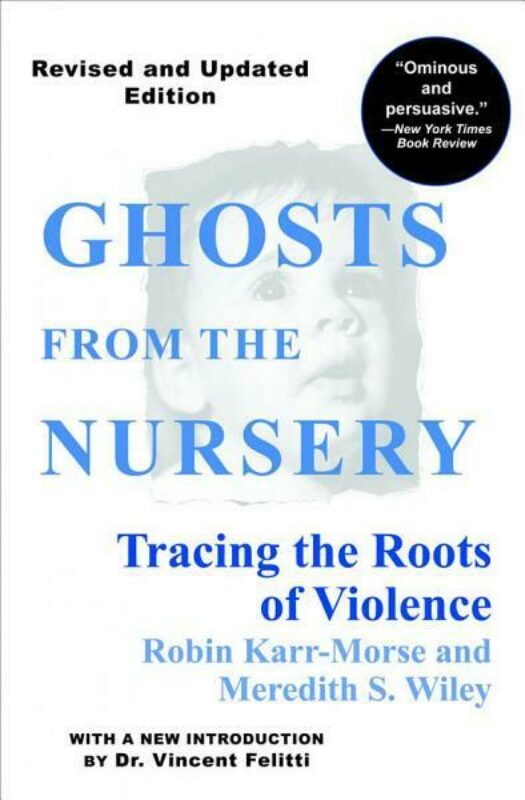
Fisher, Janina | March 3, 2017
Healing the Fragmented Selves of Trauma Survivors integrates a neurobiologically informed understanding of trauma, dissociation, and attachment with a practical approach to treatment, all communicated in straightforward language accessible to both client and therapist. Readers will be exposed to a model that emphasizes "resolution"―a transformation in the relationship to one’s self, replacing shame, self-loathing, and assumptions of guilt with compassionate acceptance. Its unique interventions have been adapted from a number of cutting-edge therapeutic approaches, including Sensorimotor Psychotherapy, Internal Family Systems, mindfulness-based therapies, and clinical hypnosis. Readers will close the pages of Healing the Fragmented Selves of Trauma Survivors with a solid grasp of therapeutic approaches to traumatic attachment, working with undiagnosed dissociative symptoms and disorders, integrating "right brain-to-right brain" treatment methods, and much more. Most of all, they will come away with tools for helping clients create an internal sense of safety and compassionate connection to even their most dis-owned selves.
Order Now →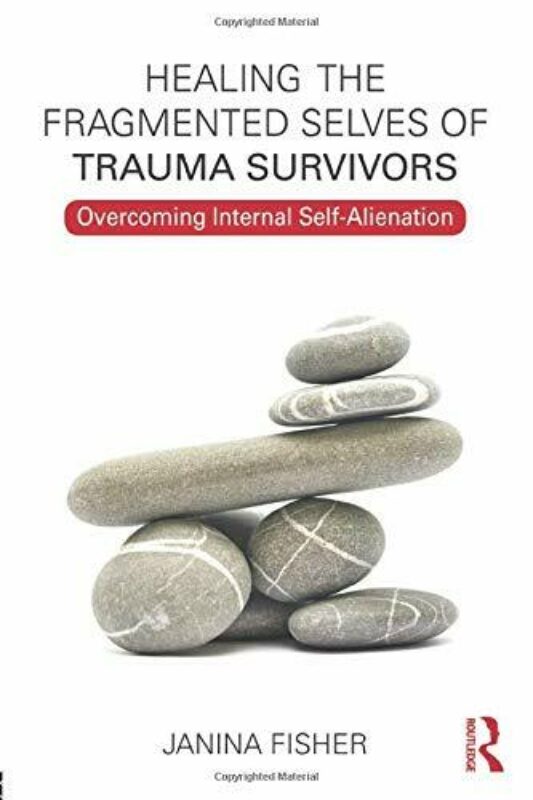
Walker, Pete | December 13, 2013
Complex PTSD: From Surviving to Thriving is a comprehensive, user-friendly, self-help guide to recovering from all the the lingering effects of childhood trauma. It is an overview of the tasks of recovering, and an illumination of the silver linings that can come out of effective recovery work. It is also a map of the recovery process, and contains a great many practical tools and techniques for recovering from CPTSD. It is also richly illustrated with examples of his own and others' journeys of recovering.
Order Now →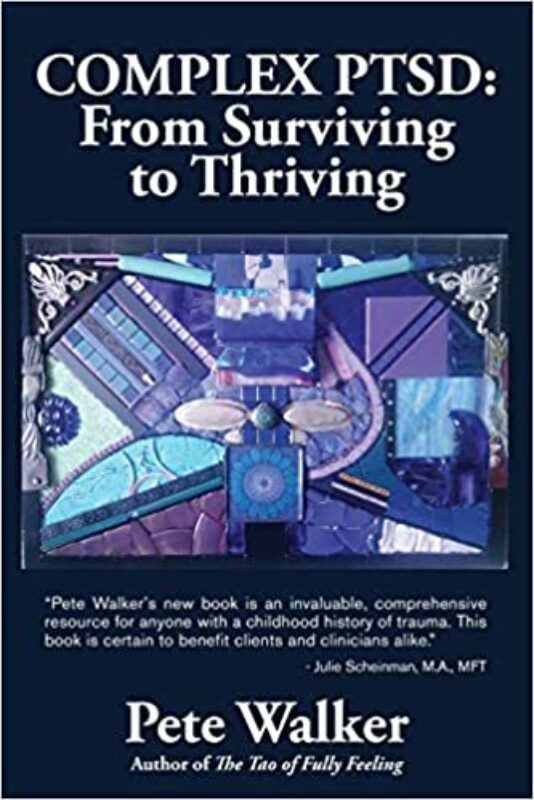
Carnes, Patrick J. | February 12, 2019
For seventeen years The Betrayal Bond has been the primary source for therapists and patients wrestling the effects of emotional pain and harm caused by exploitation from someone they trusted.
Divorce, litigation, incest and child abuse, domestic violence, kidnapping, professional exploitation and religious abuse are all areas of trauma bonding. These are situations and relationships of incredible intensity or importance lend themselves more easily to an exploitation of trust or power.
In The Betrayal Bond, Dr. Carnes presents an in-depth study of these relationships; why they form, who is most susceptible, and how they become so powerful. Dr. Carnes also gives a clear explanation of the bond that compels people to tolerate the intolerable, and for the first time, maps out the brain connection that makes being with hurtful people comparable to 'a drug of choice.' Most importantly, Carnes provides practical steps to identify compulsive attachment patterns and ultimately to change or end them for good.
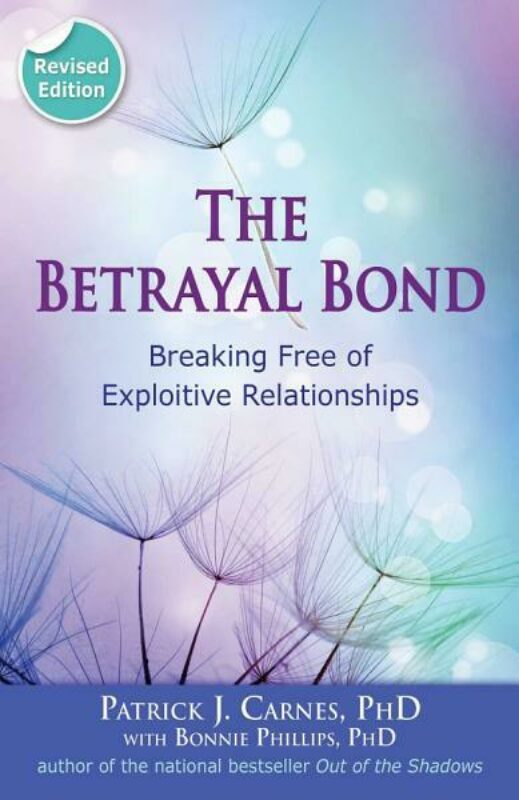
Cranes, Patrick J. | May 23, 2001
Unhooked from regular routines and healthy relationships by the coronavirus pandemic or other traumas, even our most basic human impulses and inputs can become addictive and destructive. An essential resource for those struggling with sexual addiction and compulsions, and those who love them.
With the revised information and up-to-date research, Out of the Shadows is the premier work on sex addiction, written by a pioneer in its treatment.
Sex is at the core of our identities. And when it becomes a compulsion, it can unravel our lives. Out of the Shadows is the premier work on this disorder, written by a pioneer in its treatment. Revised and updated to include the latest research--and to address the exploding phenomenon of cybersex addiction--this third edition identifies the danger signs, explains the dynamics, and describes the consequences of sexual addiction and dependency. With practical wisdom and spiritual clarity, it points the way out of the shadows of sexual compulsion and back into the light and fullness of life.
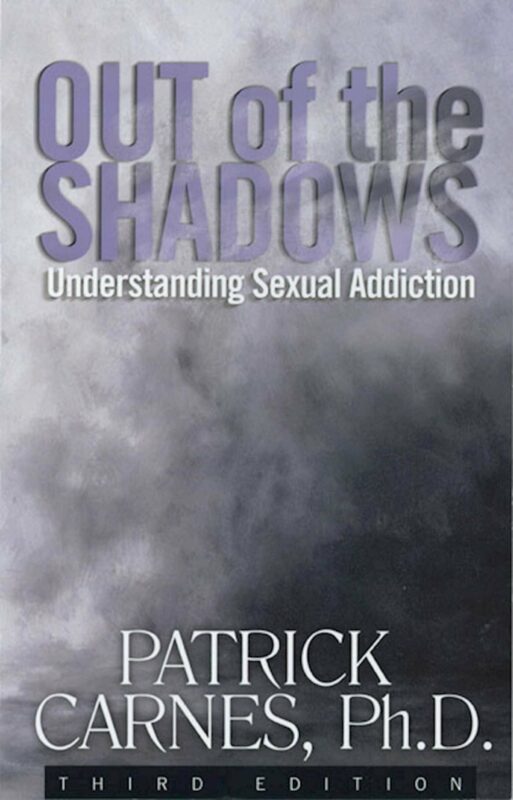
Greenberg, Elinor | September 12, 2016
Borderline, Narcissistic, and Schizoid Adaptations demystifies the diagnosis and treatment of personality disorders. It offers clear and practical advice on how to differentiate and treat clients who have made Borderline, Narcissistic, or Schizoid adaptations. Elinor Greenberg begins with an overview of the topic of personality disorders, reframes these disorders as adaptations, and then explains the treatment interventions that work best for each type of adaptation. Later chapters describe how to do specific interventions that deal with commonly encountered treatment issues such as: such as: “How to undo a Narcissistic shame-based self-hating depression,” “How to judge a Schizoid client’s sense of interpersonal safety from their dreams,” and “How to help Borderline clients reach their goals.” Each type of intervention is explained in detail, ample clinical examples are given, as is how and when to utilize the method in the client’s treatment. Both beginning therapists and experienced clinicians alike will find this book a useful resource that will expand their understanding and effectiveness with this often challenging group of clients.
Order Now →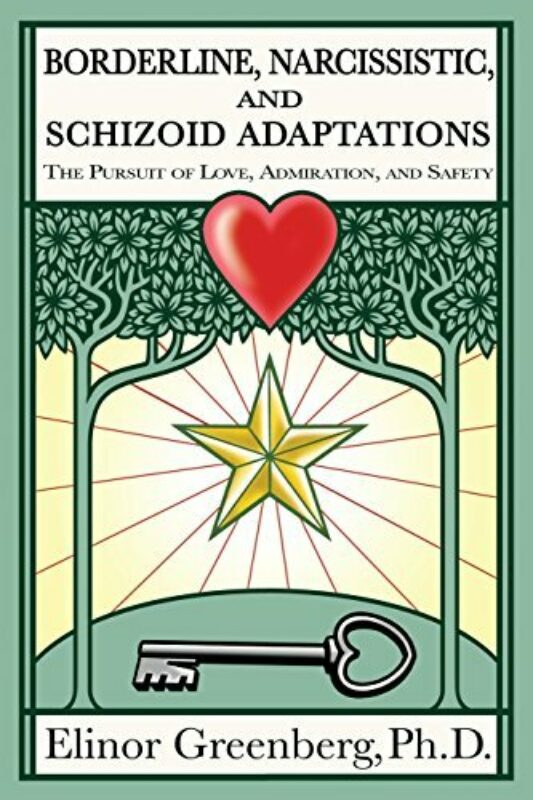
Blume, E. Sue | January 20, 1998
Secret Survivors is the first book to expand the definition of incest to include any adult abuser and to focus on what incest does to survivors. E. Sue Blume shows how incest is often at the root of such problems as depression, sexual and eating disorders, drug and alcohol abuse, and phobias and panic disorders. Using this information and the author's guidance, survivors can identify themselves, develop alternative, nondestructive survival techniques and begin again on a new path toward a rich and empowered life.
Order Now →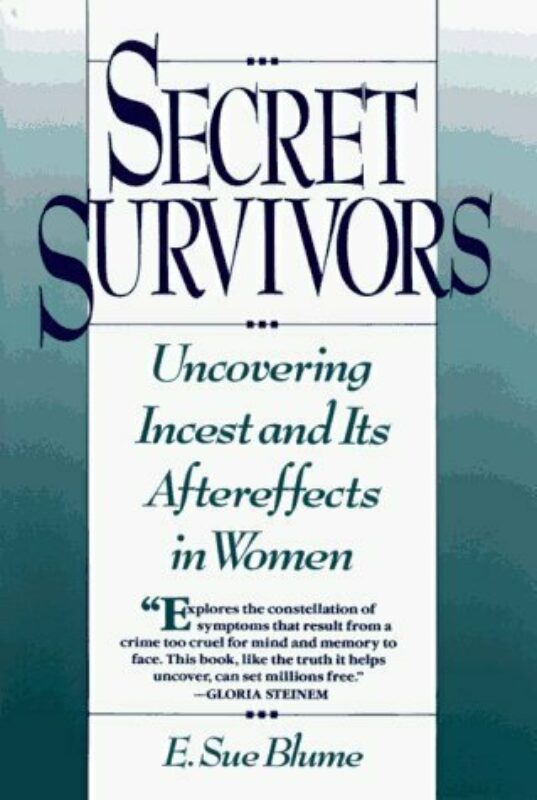
Celani, David | September 6, 2011
Why, after a childhood of emotional neglect and abuse, would a man move next door to the very parents who caused him pain? And how can a woman emerge from her mother's control in order to form healthy adult relationships?
Giving up family attachments that failed to meet our needs as children, David Celani argues, is the hardest psychological task an adult can undertake. Yet the reality is that many adults re-create the most painful aspects of their early relationships with their parents in new relationships with peers and romantic partners, frustrating themselves and discouraging them from leaving their family of origin. Leaving Home emphasizes the life-saving benefits of separating from destructive parents and offers a viable program for personal emancipation.
Celani's program is based on Object-Relations Theory, a branch of psychoanalysis developed by Scottish analyst Ronald Fairbairn. The human personality, Fairbairn argued, is not the result of inherited (and thus immutable) instincts. Rather, the developing child builds internal relational templates that guide his future interactions with others based on the conscious and unconscious memories he internalized from his primary relationship―the one he experienced with his parents. While a child's attachment to parents who were neglectful or even abusive is not uncommon, there is a way out. Articulate, sensitive, and replete with examples from Celani's twenty-six years of clinical practice, this book outlines the practical steps to leaving home.
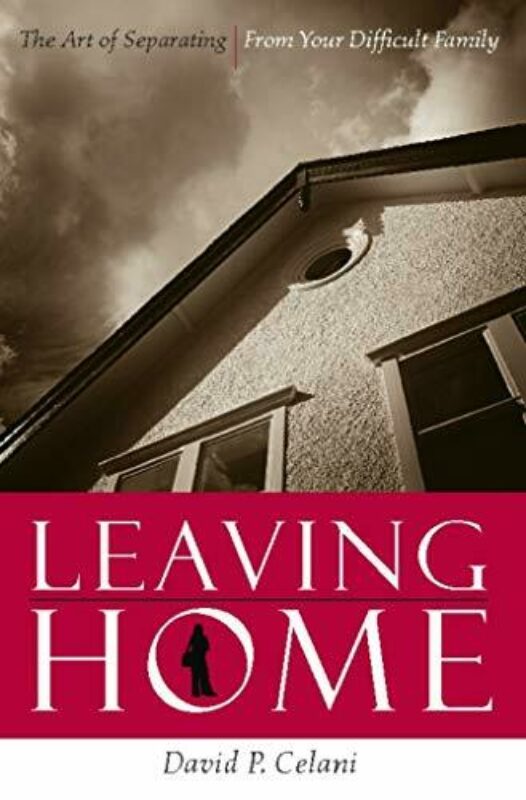
Brandt, Joyelle and Daum, Dawn | November 5, 2015
Trigger Points Anthology is a collection of writing by parents who are survivors of childhood abuse. Editors Joyelle Brandt and Dawn Daum are survivors of childhood abuse working to break the cycle for their own families. Raising children as an abuse survivor is often a lonely and isolating experience, as the triggers and flashbacks of abuse can be hard for non-survivors to understand. When they were looking for stories of how other survivors coped, and couldn't find any, they decided that something needed to change. So together they started an online community specifically for parent survivors, and started collecting essays to create the Trigger Points Anthology. A book where survivors of all forms of childhood abuse could talk about what it is like to be a parent when your own childhood was so traumatic. Parenting when you experienced childhood abuse often feels like walking back into a war zone as a soldier with PTSD. There are flashbacks and triggers everywhere, and most parents are completely blindsided by them because no one tells us that this can happen.
Our Mission 1. To let survivor parents know that they are not alone, and that what they are experiencing is a perfectly normal reaction for those with a history of childhood trauma. 2. To educate health care and social service providers who work with parents about common triggers are that arise for survivor parents. 3. To help partners and families of abuse survivors understand what we are going through.
Order Now →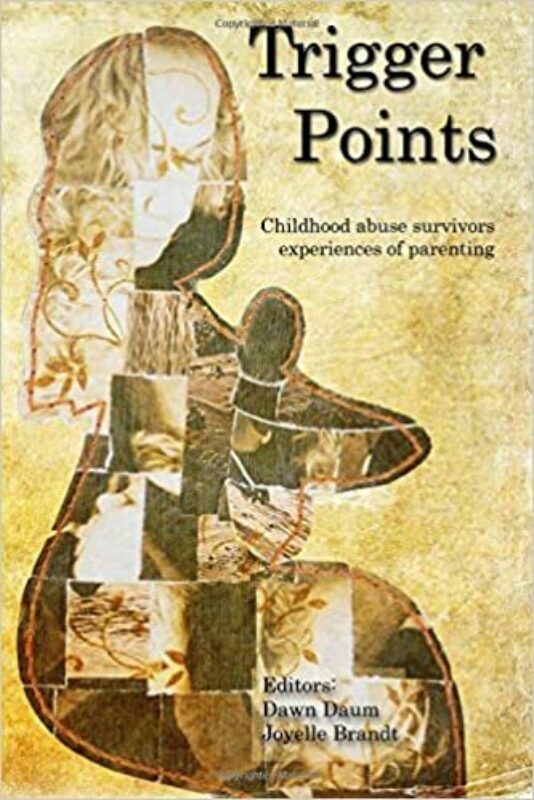
Mason, Paul T. T. and Kreger, Randi | December 1, 2020
Do you feel manipulated, controlled, or lied to? Are you the focus of intense, violent, and irrational rages? Do you feel you are ‘walking on eggshells’ to avoid the next confrontation? If the answer is ‘yes,’ someone you care about may have borderline personality disorder (BPD)—a mood disorder that causes negative self-image, emotional instability, and difficulty with interpersonal relationships.
Stop Walking on Eggshells has already helped more than a million people with friends and family members suffering from BPD understand this difficult disorder, set boundaries, and help their loved ones stop relying on dangerous BPD behaviors. This fully revised third edition has been updated with the very latest BPD research on comorbidity, extensive new information about narcissistic personality disorder (NPD), the effectiveness of schema therapy, and coping and communication skills you can use to stabilize your relationship with the BPD or NPD sufferer in your life.
This compassionate guide will enable you to:
If you’re ready to bring peace and stability back into your life, this time-tested guide will show you how, one confident step at a time.
Order Now →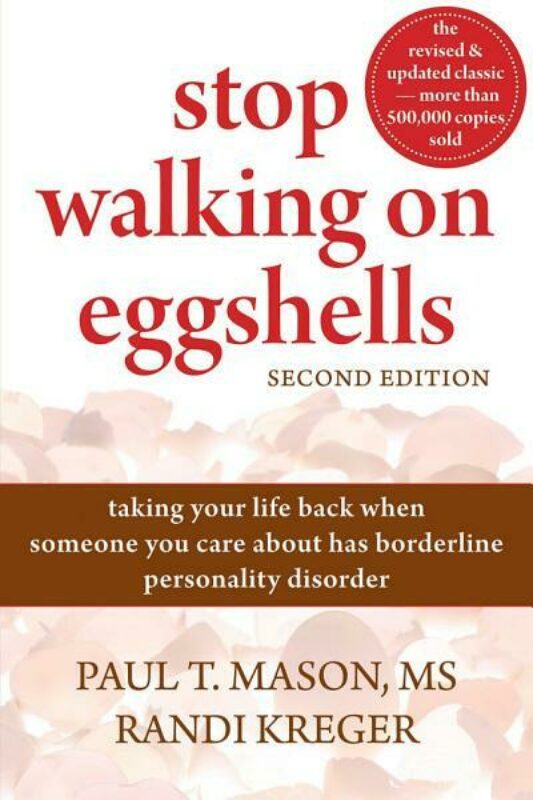
Webb, Jonice | October 1, 2012
Running on Empty is the first self-help book about Emotional Neglect: an invisible force from your childhood which you can't see, but may be affecting you profoundly to this day. It is about what didn't happen in your childhood, what wasn't said, and what cannot be remembered.
Do you sometimes feel as if you're just going through the motions in life? Are you good at looking and acting as if you're fine, but secretly feel lonely and disconnected? Perhaps you have a fine life and are good at your work, but somehow it's just not enough to make you happy.
If so, you are not alone. The world is full of people who have an innate sense that something is wrong with them. Who feel they live on the outside looking in, but have no explanation for their feeling and no way to put it into words. Who blame themselves for not being happier.
If you are one of these people, you may fear that you are not connected enough to your spouse, or that you don't feel pleasure or love as profoundly as others do. Perhaps when you do experience strong emotions, you have difficulty understanding or tolerating them. You may drink too much, or eat too much, or risk too much, in an attempt to feel something good.
In over twenty years of practicing psychology, many people have arrived in Jonice Webb's office, driven by the threat of divorce or the onset of depression, or by loneliness, and said, ""Something is missing in me.""
Running on Empty will give you clear strategies for how to heal, and offers a special chapter for mental health professionals. In the world of human suffering, this book is an Emotional Smart Bomb meant to eradicate the effects of an invisible enemy.
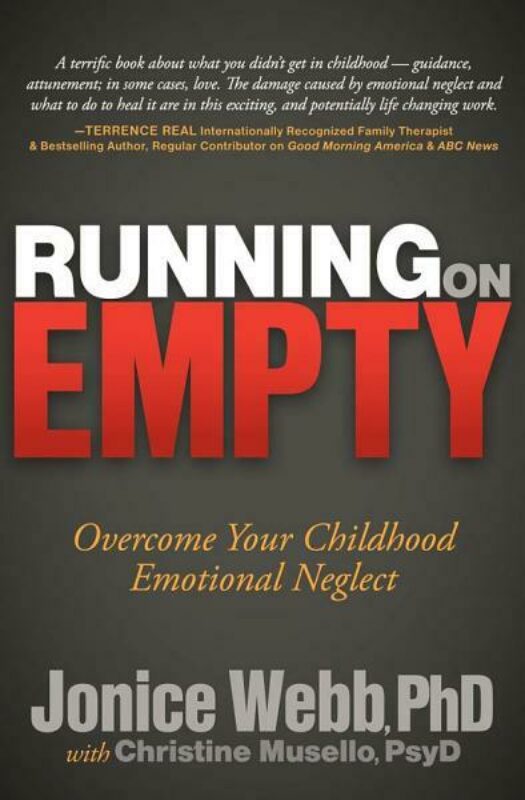
Orloff, Judith | September 4, 2018
What is the difference between having empathy and being an empath? "Having empathy means our heart goes out to another person in joy or pain," says Judith Orloff, MD. "But for empaths it goes much further. We actually feel others’ emotions, energy, and physical symptoms in our own bodies, without the usual defenses that most people have." With The Empath’s Survival Guide, Dr. Orloff offers a practical tool set to help sensitive people develop healthy coping mechanisms in our high-stimulus world―while fully embracing the empath’s gifts of intuition, compassion, creativity, and spiritual connection.
This practical, empowering, and loving book was created to support empaths and anyone who wants to develop their sensitivities to become more caring people in an often-insensitive world. It helps empaths through their unique challenges and gives loved ones a better understanding of the needs and gifts of the sensitive people in their lives. In this book Dr. Orloff offers crucial practices, including:
• Self-assessment exercises to help you identify your empath type
• Tools for protecting yourself from sensory overload, exhaustion, addictions, and compassion fatigue while replenishing your vital energy
• Simple and effective strategies to stop absorbing stress and physical symptoms from others and protect yourself from narcissists and other energy vampires
• How to find the right work and create relationships that nourish you
• How to navigate intimate relationships without feeling overwhelmed
• Guidance for parenting and raising empathic children
• Awakening the empath’s gift of intuition and deepening your spiritual connection to all living beings
For any sensitive person who’s been told to "grow a thick skin," this paperback edition of The Empath's Survival Guide is an invaluable resource for staying fully open while building resilience, exploring your gifts of depth and compassion, and feeling welcome and valued by a world that desperately needs what you have to offer.
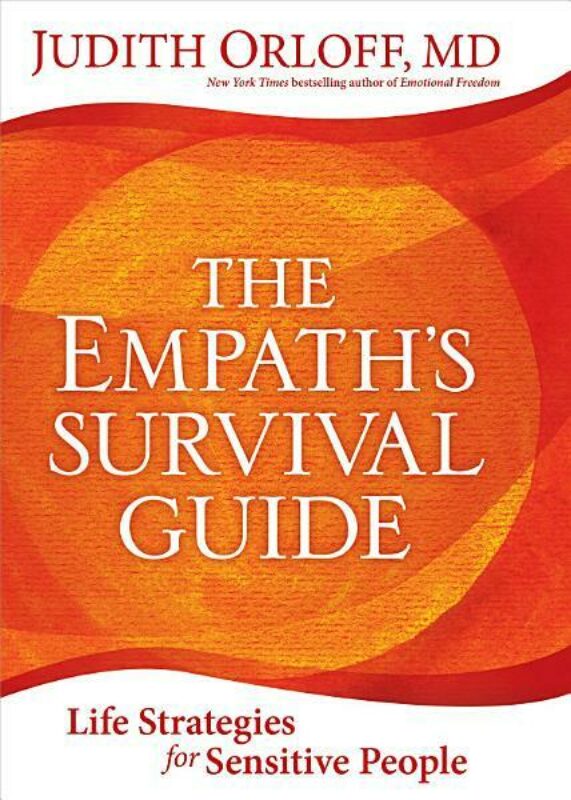
North, Ora | August 1, 2019
I Don’t Want to Be an Empath Anymore is a gift for the jaded empath searching for authenticity in spirituality, and spirituality in being authentic—something beyond the clichéd, positive affirmations that seem to invalidate our anger, sadness, and pain. When we feel broken—and when real damage has been done, it’s not always helpful to ignore our feelings and tell ourselves that we are perfect and whole.
In this refreshingly honest guide, shamanic practitioner Ora North offers practical exercises to help you navigate your intuition and empathic sensitivities, create much-needed boundaries, and build confidence. You’ll also learn to balance your emotions and energy, and harness the strength of your shadow side to embrace your whole self and live your best life.
Like the Japanese craft known as Kintsugi—the art of repairing broken pottery using a lacquer dusted with powdered gold—the process of acknowledging and repairing our fragmented selves can make us even more beautiful than before, cracks and all. In this book, you won’t find platitudes or attempts to whitewash your experiences. What you will find are real, practical tools and guidance to help you make the most of your unique abilities.
Order Now →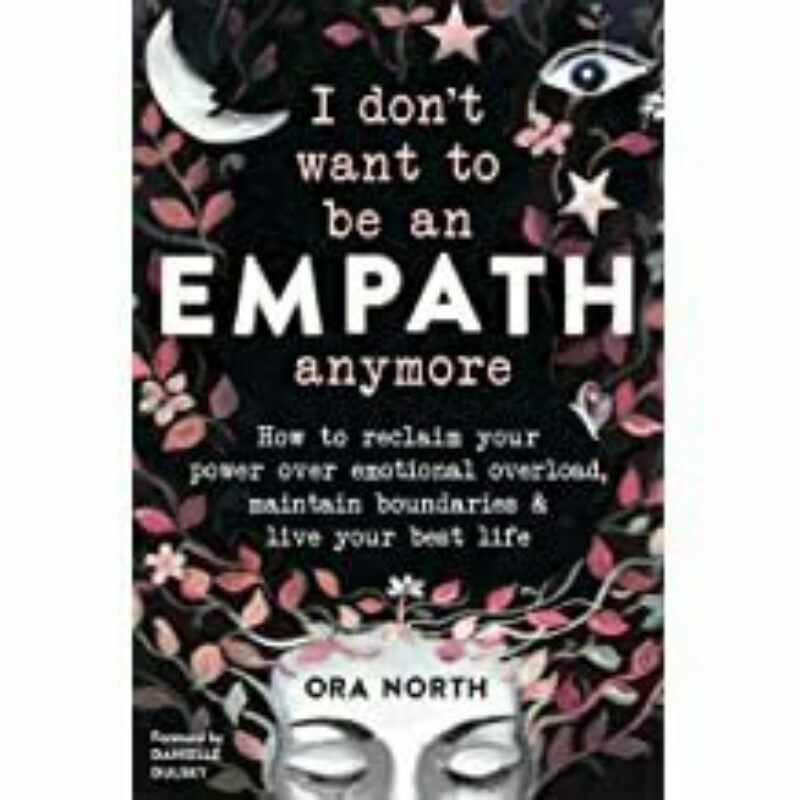
Perry, Bruce and Szalavitz, Maia | December 25, 2007
What happens when a young brain is traumatized? How does terror, abuse, or disaster affect a child's mind -- and how can that mind recover? Child psychiatrist Dr. Bruce D. Perry has helped children faced with unimaginable horror: genocide survivors, murder witnesses, kidnapped teenagers, and victims of family violence.
In The Boy Who Was Raised as a Dog, Dr. Perry tells their stories of trauma and transformation through the lens of science, revealing the brain's astonishing capacity for healing. Deftly combining unforgettable case histories with his own compassionate, insightful strategies for rehabilitation, Perry explains what exactly happens to the brain when a child is exposed to extreme stress -- and reveals the unexpected measures that can be taken to ease a child's pain and help him grow into a healthy adult.
As a senior fellow at the Child Trauma Academy, Dr. Perry and his clinical group worked with hundreds who endured severe childhood neglect and abuse with incredible resilience and strength. Through the stories of children who recover -- physically, mentally, and emotionally -- from the most devastating circumstances, Perry shows how simple things like surroundings, affection, language, and touch can deeply impact the developing brain, for better or for worse. In this deeply informed and moving book, Bruce Perry dramatically demonstrates that only when we understand the science of the mind can we hope to heal the spirit of even the most wounded child.
Order Now →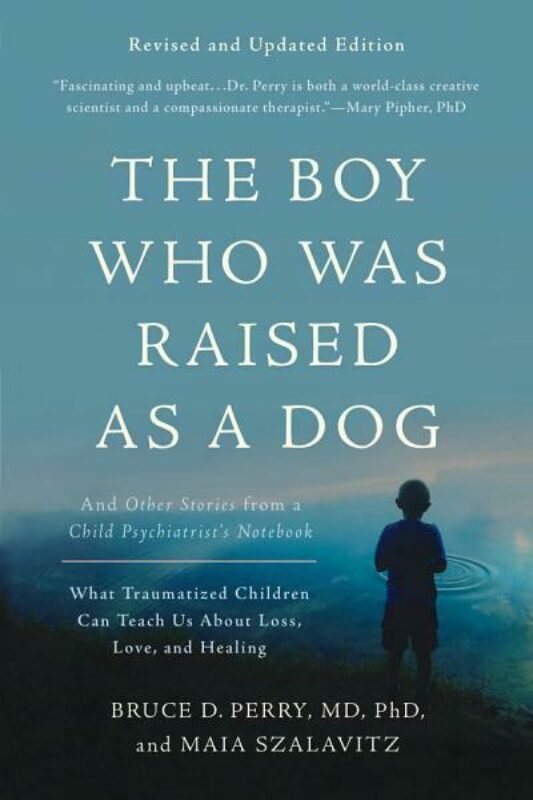
Dana, Deb | June 12, 2018
This book offers therapists an integrated approach to adding a polyvagal foundation to their work with clients. With clear explanations of the organizing principles of Polyvagal Theory, this complex theory is translated into clinician and client-friendly language. Using a unique autonomic mapping process along with worksheets designed to effectively track autonomic response patterns, this book presents practical ways to work with clients' experiences of connection. Through exercises that have been specifically created to engage the regulating capacities of the ventral vagal system, therapists are given tools to help clients reshape their autonomic nervous systems.
Adding a polyvagal perspective to clinical practice draws the autonomic nervous system directly into the work of therapy, helping clients re-pattern their nervous systems, build capacities for regulation, and create autonomic pathways of safety and connection. With chapters that build confidence in understanding Polyvagal Theory, chapters that introduce worksheets for mapping, tracking, and practices for re-patterning, as well as a series of autonomic meditations, this book offers therapists a guide to practicing polyvagal-informed therapy.
The Polyvagal Theory in Therapy is essential reading for therapists who work with trauma and those who seek an easy and accessible way of understanding the significance that Polyvagal Theory has to clinical work.
Order Now →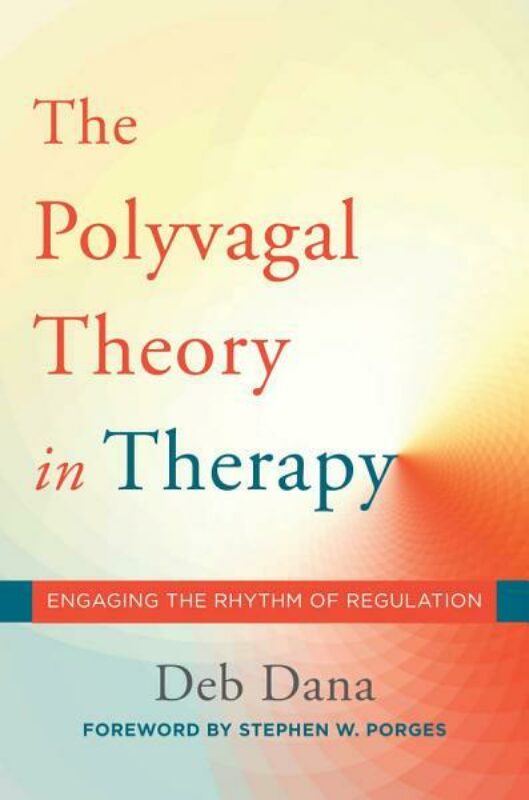
Roth, Kimberlee and Friedman, Freda B. | January 1, 2004
Surviving a Borderline Parent is the first step-by-step guide for adult children of parents with borderline personality disorder.
Between 6 and 10 million people in the US suffer from borderline personality disorder. This book teaches adult children how to overcome the devastating effects of growing up with a parent who suffers from BPD.
Although relatively common, borderline personality disorder (BPD) is often overlooked or misdiagnosed by therapists and clinicians and denied by those who suffer from it.
Symptoms of this problem include unpredictability, violence and uncontrollable anger, deep depression and self-abuse. Parents with BPD are often unable to provide for the basic physical and emotional needs of their children. In an ironic and painful role reversal, BPD parents can actually raise children to be their caretakers. They may burden even very young children with adult responsibilities.
If you were raised by a BPD parent, your childhood was a volatile and painful time. This book, the first written specifically for children of borderline parents, offers step-by-step guidance to understanding and overcoming the lasting effects of being raised by a person suffering from this disorder. Discover specific coping strategies for dealing with issues common to children of borderline parents: low self-esteem, lack of trust, guilt, and hypersensitivity. Make the major decision whether to confront your parent about his or her condition.
Order Now →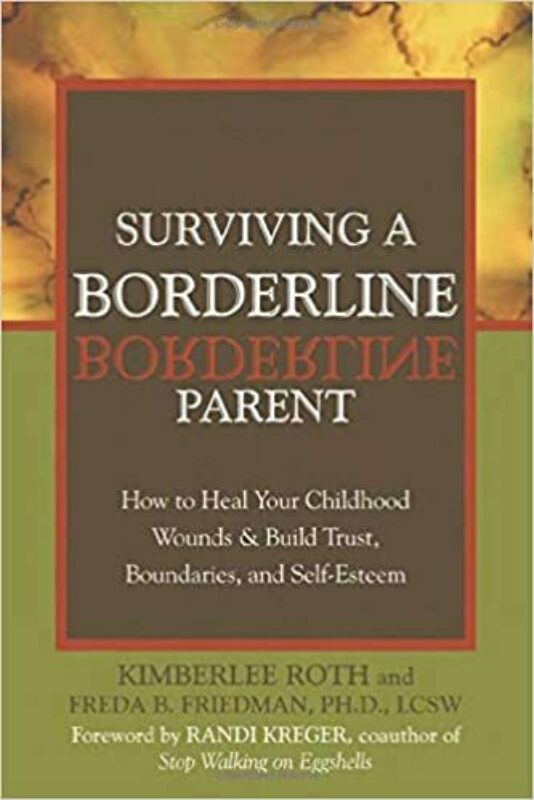
Atkinson, Matt | December 17, 2010
WINNER of the Living Now Bronze Medal for "Books for a Better Tomorrow" - WINNER of the Nautilus Awards Silver Medal for "Books That Are Changing the World" - Letters to Survivors has been chosen by counseling programs and women's centers across America as their first-recommended book for survivors of rape and sexual abuse. What if you really aren't alone? What if you knew there is hope that things can get better? What if you could connect with other amazing women who have been through it too, and could share their hopes, advice, wit, and wisdom with you? Letters to Survivors offers you that. Women from around the world, from teen to adult, have gathered to give you their personal message of hope after rape. That makes Letters to Survivors one of the most uplifting, life-changing books you may ever read. Every letter is presented as a work of full-color art, alongside the printed text of each letter for ease of reading. Each woman's letter addresses a different aspect of recovery from rape, such as recovering trust, coping with depression and suicidal thoughts, self-injury, spirituality/God, how to find support, how to recognize toxic so-called "helpers," how to work effectively with your therapist, how to handle discouragement, and how to find hope again. Nothing in the book is "triggering"--there is no harsh language or dark imagery. Letters to Survivors can be read by a person at any stage of healing, and there is no other book like it.
Order Now →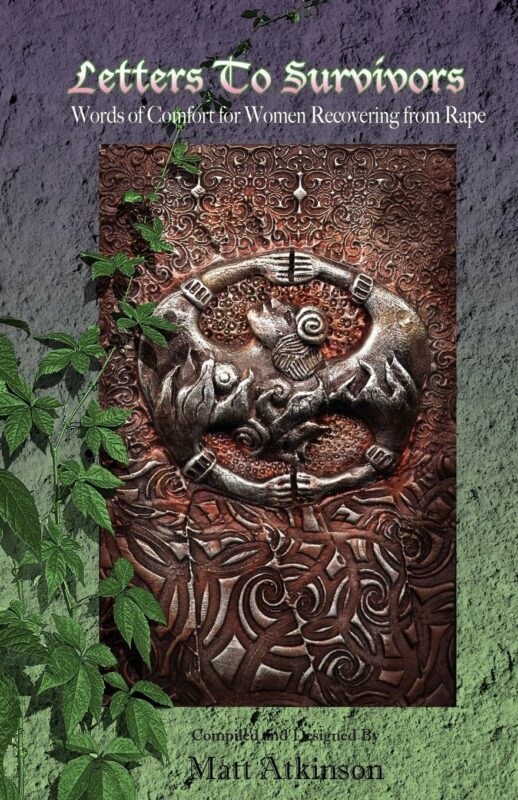
Szalavitz, Maia | May 9, 2017
More people than ever before see themselves as addicted to, or recovering from, addiction, whether it be alcohol or drugs, prescription meds, sex, gambling, porn, or the internet. But despite the unprecedented attention, our understanding of addiction is trapped in unfounded 20th century ideas, addiction as a crime or as brain disease, and in equally outdated treatment.
Challenging both the idea of the addict's “broken brain” and the notion of a simple “addictive personality,” Unbroken Brain offers a radical and groundbreaking new perspective, arguing that addictions are learning disorders and shows how seeing the condition this way can untangle our current debates over treatment, prevention and policy. Like autistic traits, addictive behaviors fall on a spectrum -- and they can be a normal response to an extreme situation. By illustrating what addiction is, and is not, the book illustrates how timing, history, family, peers, culture and chemicals come together to create both illness and recovery- and why there is no “addictive personality” or single treatment that works for all.
Combining Maia Szalavitz’s personal story with a distillation of more than 25 years of science and research, Unbroken Brain provides a paradigm-shifting approach to thinking about addiction.
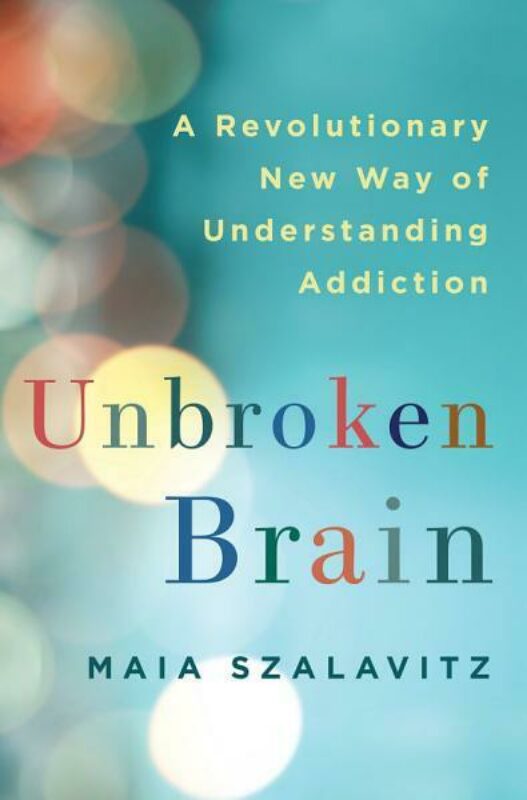
Emerson, David and West, Jennifer | February 16, 2015
When treating a client who has suffered from interpersonal trauma―whether chronic childhood abuse or domestic violence, for example―talk therapy isn’t always the most effective course. For these individuals, the trauma and its effects are so entrenched, so complex, that reducing their experience to a set of symptoms or suggesting a change in cognitive frame or behavioral pattern ignores a very basic but critical player: the body.
In cases of complex trauma, mental health professionals largely agree that the body itself contains and manifests much of the suffering―self hatred, shame, and fear. Take, for example, a woman who experienced years of childhood sexual abuse and, though very successful in her professional life, has periods of not being able to feel her limbs, sensing an overall disconnection from her very physical being. Reorienting clients to their bodies and building their “body sense” can be the very key to unlocking their pain and building a path toward healing.
Based on research studies conducted at the renowned Trauma Center in Brookline, Massachusetts, this book presents the successful intervention known as Trauma-Sensitive Yoga (TSY), an evidence-based program for traumatized clients that helps them to reconnect to their bodies in a safe, deliberate way.
Synthesized here and presented in a concise, reader-friendly format, all clinicians, regardless of their background or familiarity with yoga, can understand and use these simple techniques as a way to help their clients achieve deeper, more lasting recovery.
Unlike traditional, mat-based yoga, TSY can be practiced without one, in a therapist’s chair or on a couch. Emphasis is always placed on the internal experience of the client him- or herself, not on achieving the proper form or pleasing the therapist. As Emerson carefully explains, the therapist guides the client to become accustomed to feeling something in the body―feet on the ground or a muscle contracting―in the present moment, choosing what to do about it in real time, and taking effective action. In this way, everything about the practice is optional, safe, and gentle, geared to helping clients to befriend their bodies.
With over 30 photographs depicting the suggested yoga forms and a final chapter that presents a portfolio of step-by-step yoga practices to use with your clients, this practical book makes yoga therapy for trauma survivors accessible to all clinicians. As an adjunct to your current treatment approach or a much-needed tool to break through to your traumatized clients, Trauma-Sensitive Yoga in Therapy will empower you and your clients on the path to healing.
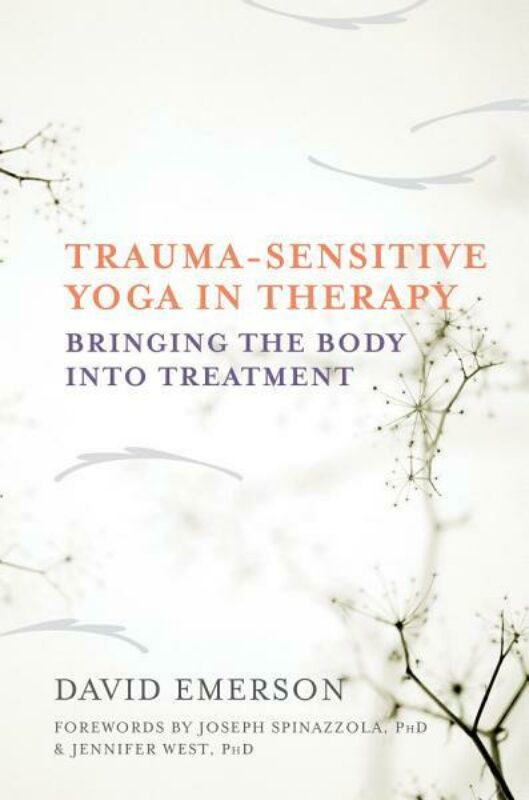
Treleaven, David A. | February 13, 2018
From elementary schools to psychotherapy offices, mindfulness meditation is an increasingly mainstream practice. At the same time, trauma remains a fact of life: the majority of us will experience a traumatic event in our lifetime, and up to 20% of us will develop posttraumatic stress. This means that anywhere mindfulness is being practiced, someone in the room is likely to be struggling with trauma.
At first glance, this appears to be a good thing: trauma creates stress, and mindfulness is a proven tool for reducing it. But the reality is not so simple.
Drawing on a decade of research and clinical experience, psychotherapist and educator David Treleaven shows that mindfulness meditation―practiced without an awareness of trauma―can exacerbate symptoms of traumatic stress. Instructed to pay close, sustained attention to their inner world, survivors can experience flashbacks, dissociation, and even retraumatization.
This raises a crucial question for mindfulness teachers, trauma professionals, and survivors everywhere: How can we minimize the potential dangers of mindfulness for survivors while leveraging its powerful benefits?
Trauma-Sensitive Mindfulness offers answers to this question. Part I provides an insightful and concise review of the histories of mindfulness and trauma, including the way modern neuroscience is shaping our understanding of both. Through grounded scholarship and wide-ranging case examples, Treleaven illustrates the ways mindfulness can help―or hinder―trauma recovery.
Part II distills these insights into five key principles for trauma-sensitive mindfulness. Covering the role of attention, arousal, relationship, dissociation, and social context within trauma-informed practice, Treleaven offers 36 specific modifications designed to support survivors’ safety and stability. The result is a groundbreaking and practical approach that empowers those looking to practice mindfulness in a safe, transformative way.
Order Now →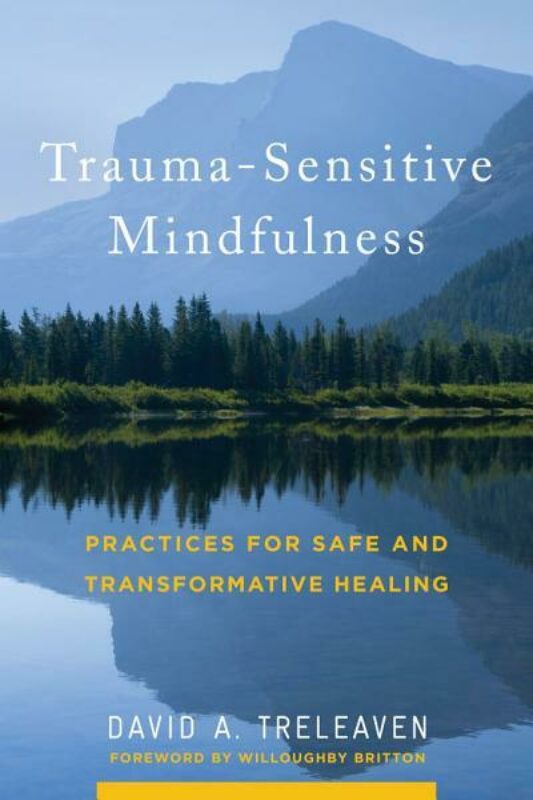
Porges, Stephen W. | September 5, 2017
When The Polyvagal Theory was published in 2011, it took the therapeutic world by storm, bringing Stephen Porges’s insights about the autonomic nervous system to a clinical audience interested in understanding trauma, anxiety, depression and other mental health issues. The book made accessible to clinicians and other professionals a polyvagal perspective that provided new concepts and insights for understanding human behavior. The perspective placed an emphasis on the important link between psychological experiences and physical manifestations in the body. That book was brilliant but also quite challenging to read for some.
Since publication of that book, Stephen Porges has been urged to make these ideas more accessible and The Pocket Guide to the Polyvagal Theory is the result. Constructs and concepts embedded in polyvagal theory are explained conversationally in The Pocket Guide and there is an introductory chapter which discusses the science and the scientific culture in which polyvagal theory was originally developed. Publication of this work enables Stephen Porges to expand the meaning and clinical relevance of this groundbreaking theory.
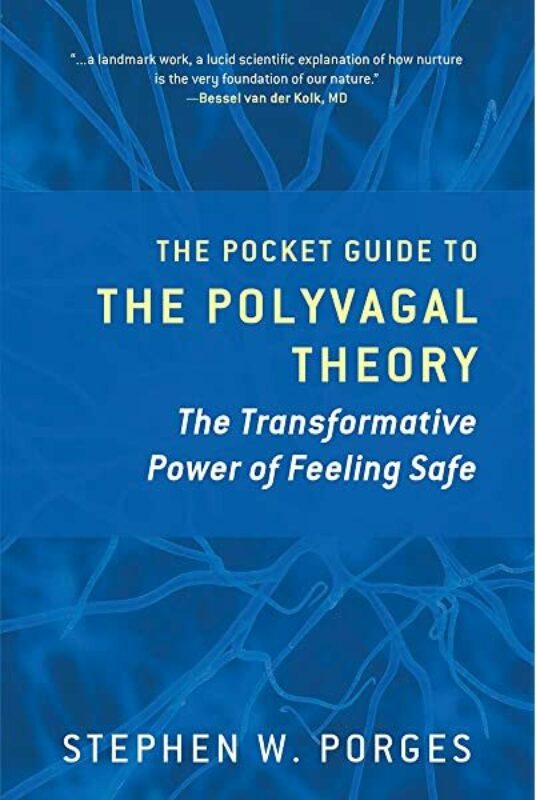
Holmes, Tom and Holmes, Lauri | September 1, 2007
The book, Parts Work, describes our inner psychological world with drawings which are moving, thought-provoking, sometimes humorous and often poignant. The book shows how we can disentangle ourselves from the problematic habitual patterns in which we get stuck, and offers ways of positively using our particular talents and style for a fuller life. Through practical examples as well as clinical illustrations, the book helps us to understand ourselves and others better.
Order Now →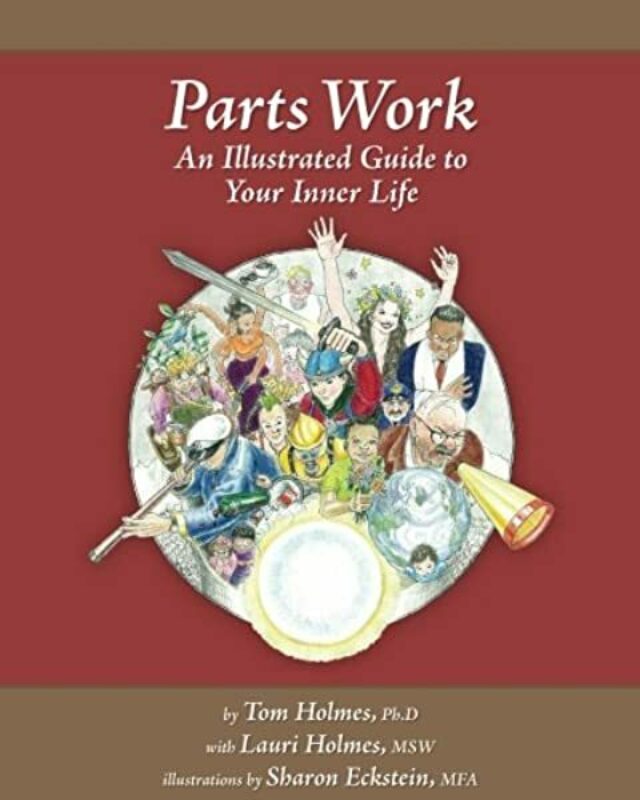
Jackson Nakazawa, Donna | July 26, 2016
Your biography becomes your biology. The emotional trauma we suffer as children not only shapes our emotional lives as adults, but it also affects our physical health, longevity, and overall wellbeing. Scientists now know on a bio-chemical level exactly how parents’ chronic fights, divorce, death in the family, being bullied or hazed, and growing up with a hypercritical, alcoholic, or mentally ill parent can leave permanent, physical “fingerprints” on our brains.
When children encounter sudden or chronic adversity, stress hormones cause powerful changes in the body, altering the body’s chemistry. The developing immune system and brain react to this chemical barrage by permanently resetting children’s stress response to “high,” which in turn can have a devastating impact on their mental and physical health as they grow up.
Donna Jackson Nakazawa shares stories from people who have recognized and overcome their adverse experiences, shows why some children are more immune to stress than others, and explains why women are at particular risk. “Groundbreaking” (Tara Brach, PhD, author of Radical Acceptance) in its research, inspiring in its clarity, Childhood Disrupted explains how you can reset your biology—and help your loved ones find ways to heal. “A truly important gift of understanding—illuminates the heartbreaking costs of childhood trauma and like good medicine offers the promising science of healing and prevention” (Jack Kornfield, author of A Path With Heart).
Order Now →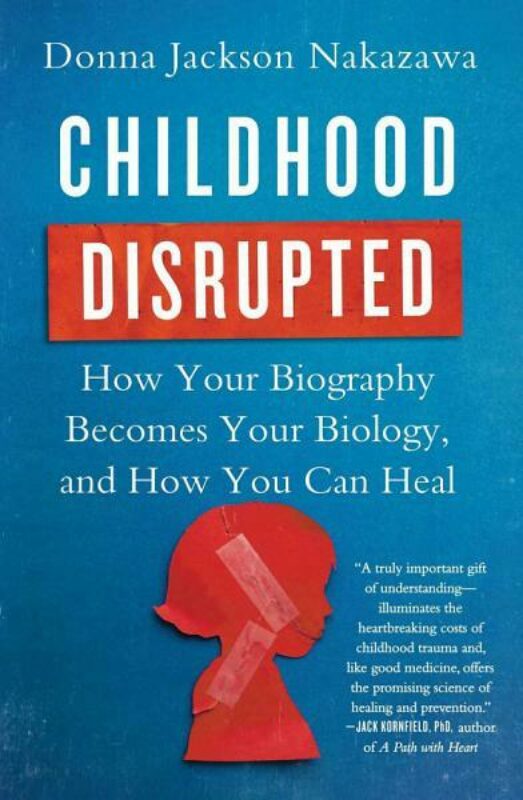
Gold, Claudia M. and Tronick, Ed | June 2, 2020
You might think that perfect harmony is the defining characteristic of healthy relationships, but the truth is that human interactions are messy, complicated, and confusing. And according to renowned psychologist Ed Tronick and pediatrician Claudia Gold, that is not only okay, it is actually crucial to our social and emotional development. In The Power of Discord they show how working through the inevitable dissonance of human connection is the path to better relationships with romantic partners, family, friends, and colleagues.
Dr. Tronick was one of the first researchers to show that babies are profoundly affected by their parents' emotions and behavior via "The Still-Face Experiment." His work, which brought about a foundational shift in our understanding of human development, shows that our highly evolved sense of self makes us separate, yet our survival depends on connection.
And so we approximate, iteratively learning about one another's desires and intentions, and gaining confidence in the process as we correct the mistakes and misunderstandings that arise.
Working through the volley of mismatch and repair in everyday life helps us form deep, lasting, trusting relationships, resilience in times of stress and trauma, and a solid sense of self in the world. Drawing on Dr. Tronick's research and Dr. Gold's clinical experience, The Power of Discord is a refreshing and original look at our ability to relate to others and to ourselves.
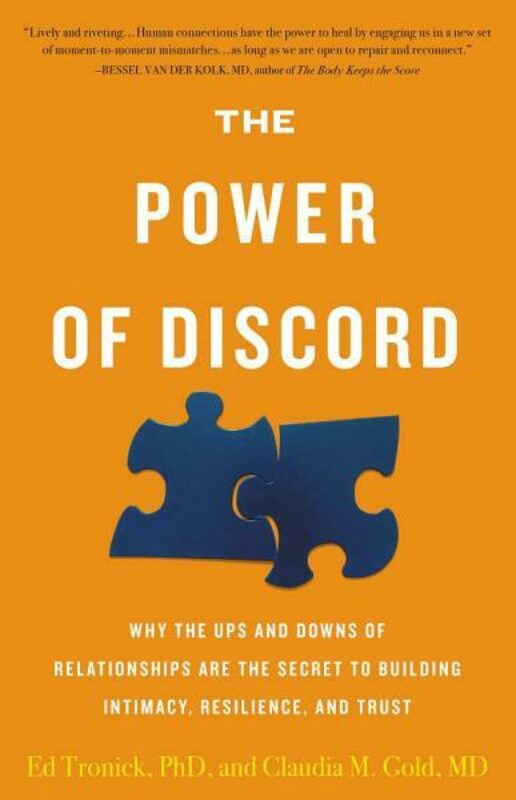
Fry, Benjamin | April 23, 2019
Do you struggle with depression, anxiety, stress or other mental health issues? Do you have medically unexplained physical symptoms like fatigue, insomnia, back pain, or poor digestion? Do you find relationships difficult, both personal and professional? Are you living with addictions that you can’t seem to stop? Would you like to know why?
This book has the answers. Once you understand what is really causing your problems, you can heal the underlying causes.
The Invisible Lion will help explain how the nervous system and its unfinished responses to your earlier problems in life leave a legacy in your body which affects everything. With this understanding it can help you to:
• Improve your mental health
• Heal your physical health
• Have better relationships and communication
• Learn how to manage your triggers and reactions
• Make better choices to manage your life
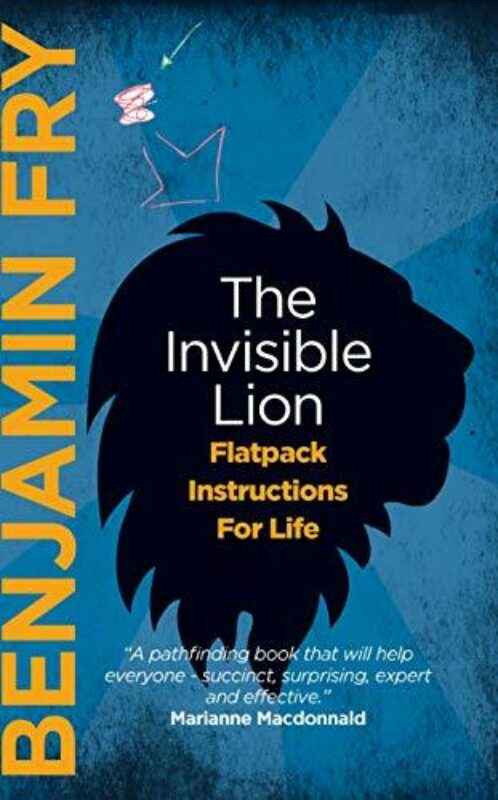
van der Hart, Onno, Nijenhuis, Ellert R. S., and Steele, Kathy | November 17, 2006
Life is an ongoing struggle for patients who have been chronically traumatized. They typically have a wide array of symptoms, often classified under different combinations of comorbidity, which can make assessment and treatment complicated and confusing for the therapist.
Many patients have substantial problems with daily living and relationships, including serious intrapsychic conflicts and maladaptive coping strategies. Their suffering essentially relates to a terrifying and painful past that haunts them. Even when survivors attempt to hide their distress beneath a facade of normality―a common strategy―therapists often feel besieged by their many symptoms and serious pain. Small wonder that many survivors of chronic traumatization have seen several therapists with little if any gains, and that quite a few have been labeled as untreatable or resistant.
In this book, three leading researchers and clinicians share what they have learned from treating and studying chronically traumatized individuals across more than 65 years of collective experience. Based on the theory of structural dissociation of the personality in combination with a Janetian psychology of action, the authors have developed a model of phase-oriented treatment that focuses on the identification and treatment of structural dissociation and related maladaptive mental and behavioral actions. The foundation of this approach is to support patients in learning more effective mental and behavioral actions that will enable them to become more adaptive in life and to resolve their structural dissociation. This principle implies an overall therapeutic goal of raising the integrative capacity, in order to cope with the demands of daily life and deal with the haunting remnants of the past, with the “unfinished business” of traumatic memories.
Of interest to clinicians, students of clinical psychology and psychiatry, as well as to researchers, all those interested in adult survivors of chronic child abuse and neglect will find helpful insights and tools that may make the treatment more effective and efficient, and more tolerable for the suffering patient.
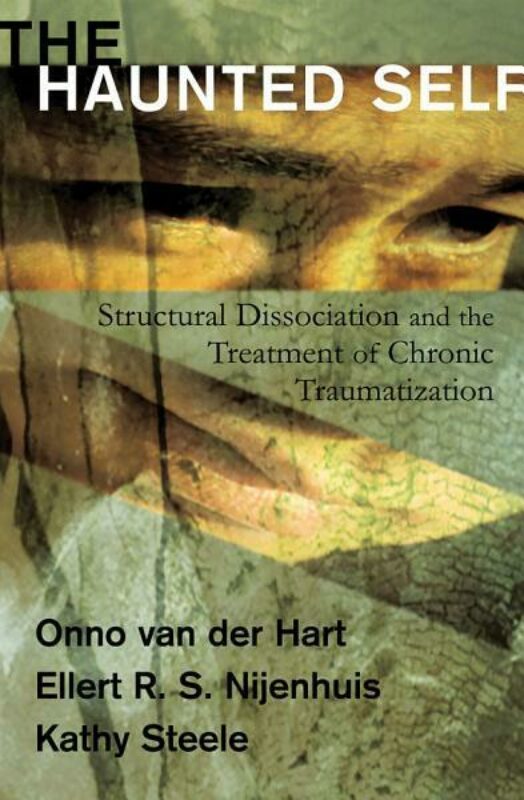
Well, Francis | September 15, 2015
Noted psychotherapist Francis Weller provides an essential guide for navigating the deep waters of sorrow and loss in this lyrical yet practical handbook for mastering the art of grieving. Describing how Western patterns of amnesia and anesthesia affect our capacity to cope with personal and collective sorrows, Weller reveals the new vitality we may encounter when we welcome, rather than fear, the pain of loss. Through moving personal stories, poetry, and insightful reflections he leads us into the central energy of sorrow, and to the profound healing and heightened communion with each other and our planet that reside alongside it.
The Wild Edge of Sorrow explains that grief has always been communal and illustrates how we need the healing touch of others, an atmosphere of compassion, and the comfort of ritual in order to fully metabolize our grief. Weller describes how we often hide our pain from the world, wrapping it in a secret mantle of shame. This causes sorrow to linger unexpressed in our bodies, weighing us down and pulling us into the territory of depression and death. We have come to fear grief and feel too alone to face an encounter with the powerful energies of sorrow.
Those who work with people in grief, who have experienced the loss of a loved one, who mourn the ongoing destruction of our planet, or who suffer the accumulated traumas of a lifetime will appreciate the discussion of obstacles to successful grief work such as privatized pain, lack of communal rituals, a pervasive feeling of fear, and a culturally restrictive range of emotion. Weller highlights the intimate bond between grief and gratitude, sorrow and intimacy. In addition to showing us that the greatest gifts are often hidden in the things we avoid, he offers powerful tools and rituals and a list of resources to help us transform grief into a force that allows us to live and love more fully.
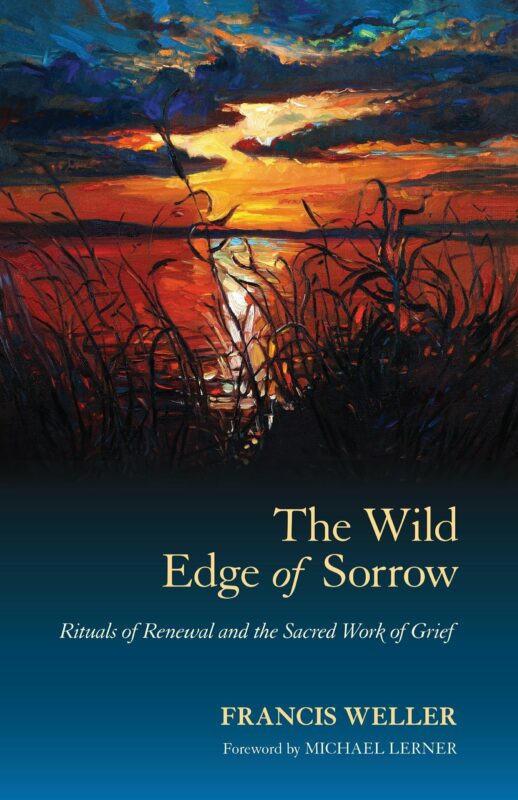
Rea, Rashani and Weller, Francis | July 15, 2017
This is a book of aliveness and brilliance; a luminous synthesis of sacred, eloquent creativity; a unique collaboration between Rashani Réa and Francis Weller, two compassionate authorities known for their revolutionary work and healing presence.A "journaling edition" is also available, which contains 96 blank pages, for those who want to add their reflections and insights as they journey through this book. As we turn each page, we become increasingly aware of the inseparable union of unconditioned Awareness and our conditioned experiences—what Peter Fenner calls "The Co-emergent Wisdom of Just This."
Rashani and Francis are skilled toolmakers who masterfully guide us through the raw vulnerability of grief to a place of reverence for the journey, offering a balm to the nomads of this harsh terrain. "The Threshold Between Loss and Revelation" infuses our lives with an immediate sense of perspective—deeper than, and beyond, conceptual understanding, inviting us to consider that suffering is an option, not an inevitable, ongoing condition! Rashani Réa's 108 stunning, full color collages are accompanied by six chapters of exquisite, soulful writing by Francis Weller. Each collage contains inspired words from more than fifty women and men, whose insights invite us to glimpse That which is unbreakable and whole—That which has been colored by experience (and grief) yet not harmed or changed by any degree of pain or suffering.This book is a compass, a lamp, a valuable guide! It is a remarkable embodiment of the ancient Tibetan practice of Tonglen.
Throughout these pages you will find a spaciousness for cultivating mercy and equanimity in the presence of grief and despair. Réa and Weller have breathed in personal and collective pain and are breathing out compassion, wisdom, wakefulness, and beauty. You can but hold this book and reach a peace you thought unattainable. But read it for perspective, and for the love of art and solace.
Order Now →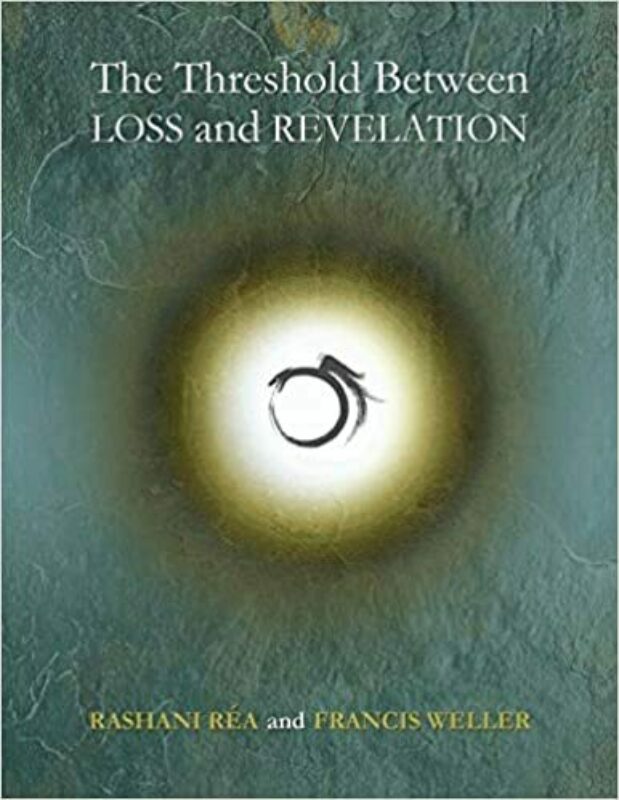
Kubler-Ross, Elisabeth and Kessler, David | August 12, 2014
Ten years after the death of Elisabeth Kübler-Ross, this commemorative edition of her final book combines practical wisdom, case studies, and the authors’ own experiences and spiritual insight to explain how the process of grieving helps us live with loss. Includes a new introduction and resources section.
Elisabeth Kübler-Ross’s On Death and Dying changed the way we talk about the end of life. Before her own death in 2004, she and David Kessler completed On Grief and Grieving, which looks at the way we experience the process of grief.
Just as On Death and Dying taught us the five stages of death—denial, anger, bargaining, depression, and acceptance—On Grief and Grieving applies these stages to the grieving process and weaves together theory, inspiration, and practical advice, including sections on sadness, hauntings, dreams, isolation, and healing. This is “a fitting finale and tribute to the acknowledged expert on end-of-life matters” (Good Housekeeping).
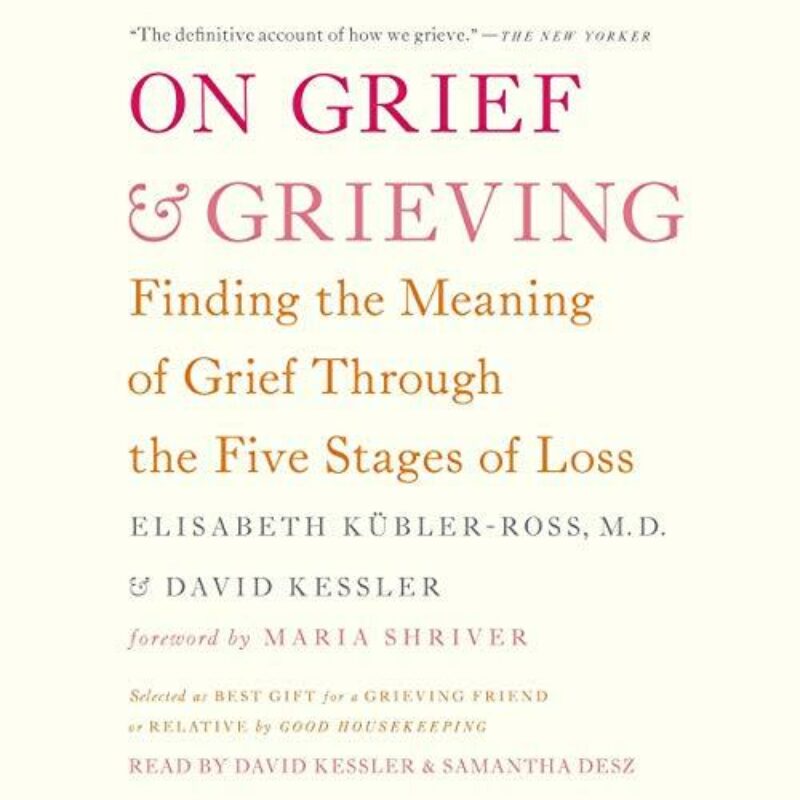
Berceli, David | January 1, 2008
Life is stressful, anxiety provoking, and frequently traumatic. The result is that many of us are hurting, and often we are unaware of how deep our pain runs. These experiences aren't simply over and done with once they have passed. They each leave their mark, etched deep into both the psyche and the body. This affects how well we function from this point onwards. The Revolutionary Trauma Release Process shows what stress, anxiety, and trauma do to our mental wellbeing and physical health. Despite the uffering we experience in life, Dr. Berceli argues that even the most damaging events can become a pathay to a more fulfilling and meaningful life.
The magic of The Revolutionary Trauma Release Process is that it can be utilized by anyone, any place on the planet. The process can reestablish a person's equilibrium, stabilize their life, and turn them to an emotionally healthy place.
Order Now →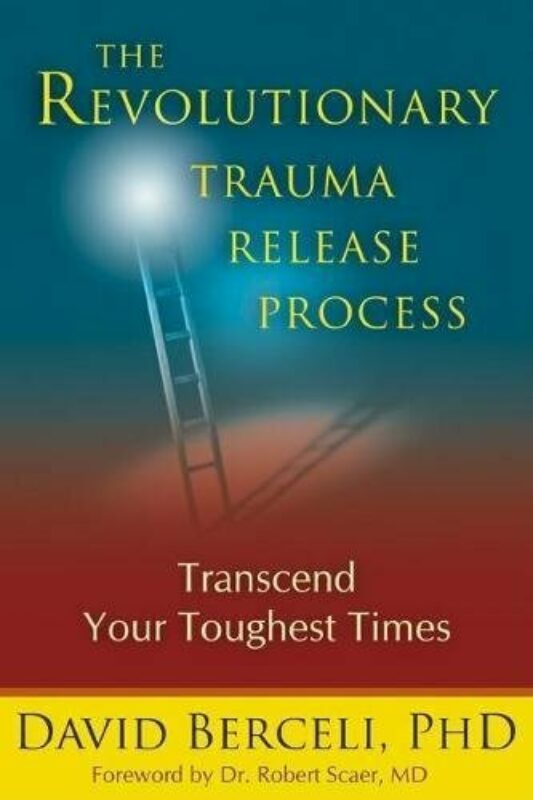
Staugaard-Jones, Jo Ann | August 21, 2012
Located deep within the anterior hip joint and lower spine, the psoas major (usually just referred to as the psoas) is critical for optimal postural alignment, movement, and overall well being. The psoas is the only muscle in the human organism that connects the upper body to the lower body, and its importance extends to the nerve complex and energy systems.
As modern-day populations grow more sedentary, psoas-related lower back and hip pain, and the ailment of "sitting too much," are on the rise. Even the most active of athletes can suffer from psoas imbalance and pain. The Vital Psoas Muscle demonstrates how to keep the muscle in balance through specific exercises designed to strengthen and utilize this amazing muscle, and discusses its vital role in the emotional and spiritual state of the human being. The interconnection between the psoas and the root chakra is explored, along with yoga poses and postures that stimulate the psoas. Eighty full-color illustrations depict anatomical details, and show the key stretching and strengthening exercises in this practical and comprehensive treatment of the most important skeletal muscle in the human body.
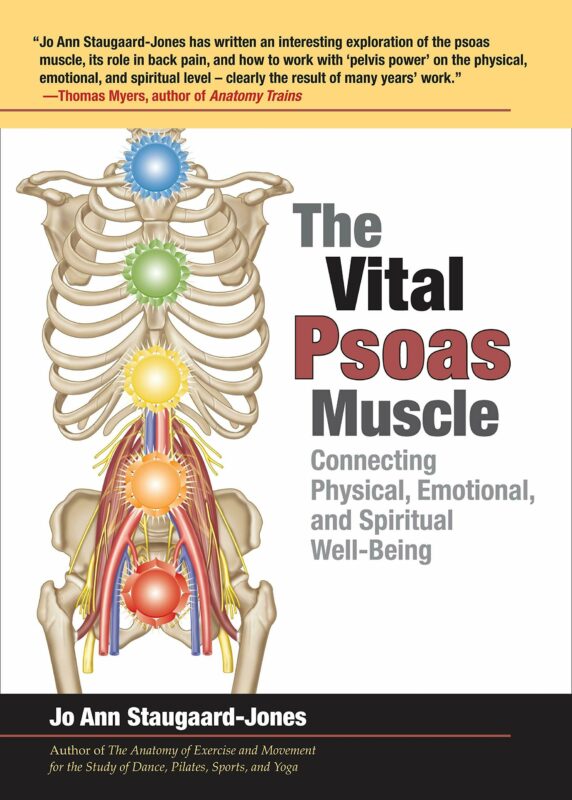
Keleman, Stanley | June 1, 1986
A landmark work that revisions both anatomy and psychology. It presents in depth how sadness, anger, fear and other emotions are physiologically organized. With 120 original drawings.
Order Now →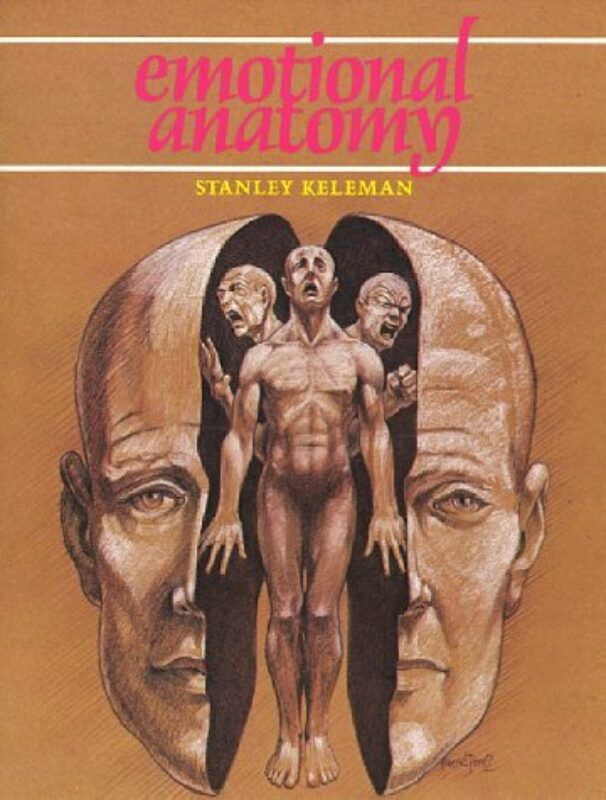
Myers, Thomas W. | June 3, 2020
Get a multi-dimensional understanding of musculoskeletal anatomy with Anatomy Trains: Myofascial Meridians for Manual Therapists and Movement Professionals, 4th Edition. This hugely successful, one-of-a-kind title continues to center on the application of anatomy trains across a variety of clinical assessment and treatment approaches ― demonstrating how painful problems in one area of the body can be linked to a "silent area" away from the problem, and ultimately giving rise to new treatment strategies. This new fourth edition has been fully updated with the latest evidence-based research and includes new coverage of anatomy trains in motion using Pilates-evolved movement, anatomy trains in horses and dogs, and the updated fascial compendium on elements, properties, neurology, and origins of the fascial system. This new edition also features an enhanced eBook format included with purchase as well as new photos and images throughout both text versions. In all, this unique exploration of the role of fascial in healthy movement and postural distortion is an essential read for physical therapists, massage therapists, craniosacral therapists, yoga instructors, osteopathologists, manual therapists, athletic and personal trainers, dance instructors, chiropractors, acupuncturists, and any professional working in the field of movement.
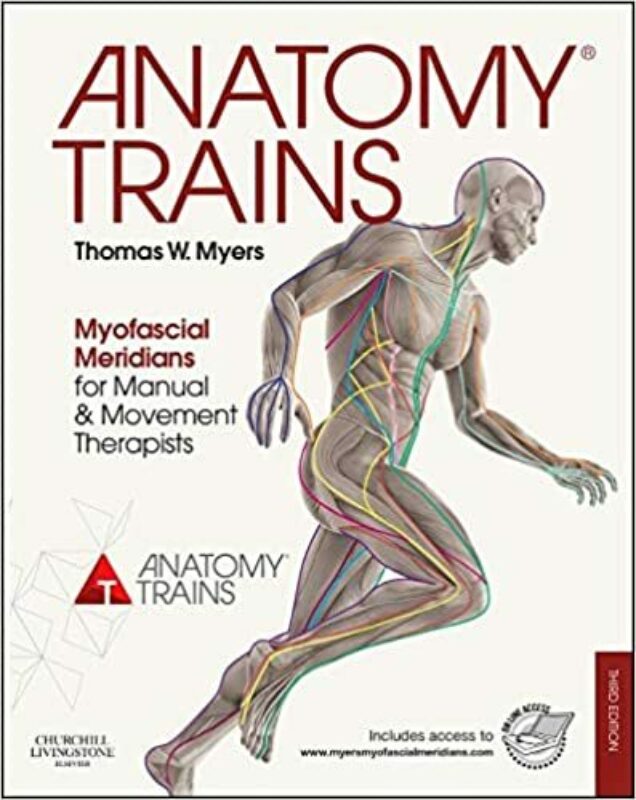
Nestor, James | May 26, 2020
No matter what you eat, how much you exercise, how skinny or young or wise you are, none of it matters if you’re not breathing properly.
There is nothing more essential to our health and well-being than breathing: take air in, let it out, repeat 25,000 times a day. Yet, as a species, humans have lost the ability to breathe correctly, with grave consequences.
Journalist James Nestor travels the world to figure out what went wrong and how to fix it. The answers aren’t found in pulmonology labs, as we might expect, but in the muddy digs of ancient burial sites, secret Soviet facilities, New Jersey choir schools, and the smoggy streets of São Paulo. Nestor tracks down men and women exploring the hidden science behind ancient breathing practices like Pranayama, Sudarshan Kriya, and Tummo and teams up with pulmonary tinkerers to scientifically test long-held beliefs about how we breathe.
Modern research is showing us that making even slight adjustments to the way we inhale and exhale can jump-start athletic performance; rejuvenate internal organs; halt snoring, asthma, and autoimmune disease; and even straighten scoliotic spines. None of this should be possible, and yet it is.
Drawing on thousands of years of medical texts and recent cutting-edge studies in pulmonology, psychology, biochemistry, and human physiology, Breath turns the conventional wisdom of what we thought we knew about our most basic biological function on its head. You will never breathe the same again.
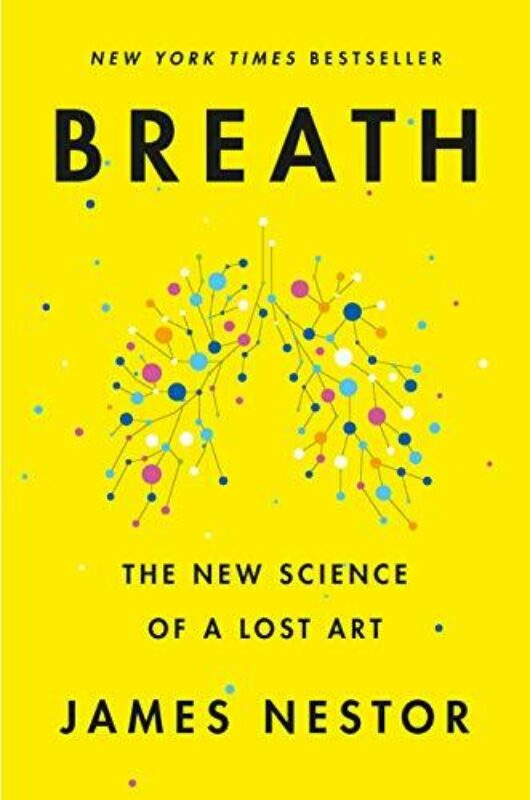
Sign up with your email to receive news and updates.